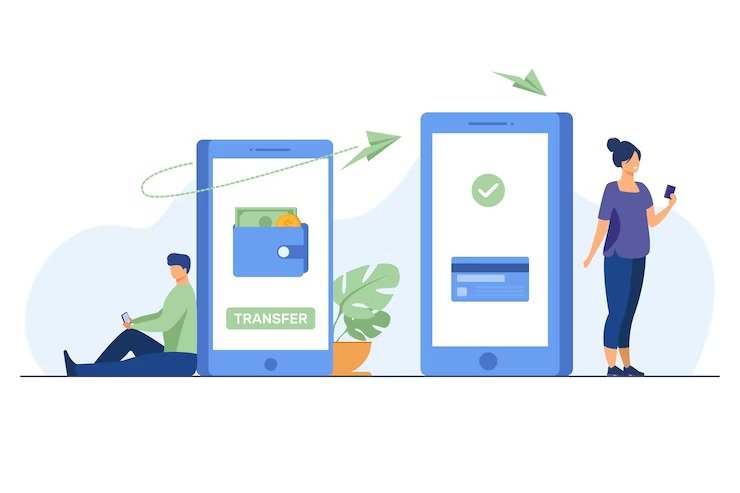Prepayment or Prepaid Solutions is a form of payment where the customer pays for a good or service before they receive it. A good example would be postage stamps, where customers pay to deliver a letter before it arrives. Another example that has become popular in modern times is buying goods online, where customers pay for an item from a website, and the item is delivered later to their homes. Digital prepayment solutions are becoming more popular and diverse as technology evolves and customer requirements change. The best gateway payment solutions can offer customers and service providers considerable flexibility, efficiency, and value advantages.
Types of Prepayment Solutions
The overview below provides a detailed analysis of the most common prepayment solutions available in the market, their benefits, and their applications.
Prepaid Cards
Prepaid cards are a convenient and secure way to manage finances, allowing customers to choose their spending limit and avoid overdraft fees. These plastic or virtual cards can be loaded with a certain amount of money and used for online or offline transactions. They can be issued by banks, fintech companies, or other entities that have a licence to provide e-money services. Prepaid cards can be tokenised and integrated with mobile wallets for contactless payments. These cards allow businesses to reduce operational costs, increase customer loyalty, and access untapped new markets.
Prepayment Metres
Prepayment metres are devices used in the utility sector, especially for electricity and gas supply. They allow customers to pay for their energy consumption in advance by using a token, card, or app. Prepayment metres can help customers to monitor their energy usage, avoid debt, and save money. They can also help utility providers to reduce billing errors, improve cash flow, and enhance customer satisfaction.
Prepayment Platforms
Prepayment platforms are online or mobile applications that enable customers to pay for goods or services in advance and access them later. These platforms can be used for various industries, such as hospitality, entertainment, education, healthcare, etc. Prepayment platforms can help customers to book their desired service or product at a discounted price, avoid queues or waiting times, and enjoy a seamless experience. They can also help businesses to increase their revenue, optimise their capacity utilisation, and attract new customers.
Prepaid Vouchers
Prepaid vouchers are codes or coupons that can be purchased online or offline and redeemed for a specific product or service. They can be used for various purposes, such as gift cards, loyalty rewards, travel tickets, etc. Prepaid vouchers can help customers to save money, enjoy convenience, and access a wide range of options. They can also help businesses increase sales, generate repeat purchases, and enhance brand awareness.
Prepaid Insurance
Prepaid insurance is a type of insurance policy that allows customers to pay for their coverage in advance in a lump sum when they take the Insurance. In contrast, regular insurance requires monthly premium payments. Prepaid insurance can be used for various types of insurance, such as health, life, car, etc. It can also help insurance providers to reduce administrative costs, improve customer retention, and expand their customer base.
Also Read: Defending Your Finances: Understanding the Advantages of Fraud Management Solutions
Advantages of Prepayment Solutions
These solutions offer several advantages for both customers and merchants, such as:
Convenience
The solutions offer customers a cashless and credit-card-free payment option for various goods and services, including transportation, utilities, entertainment, and e-commerce. This eliminates billing or invoicing and allows customers to access their funds anytime through online accounts or mobile devices.
Security
These are known for their security features, which include authentication methods such as PINs, passwords, and biometrics. Customers can monitor their transactions and balances through mobile apps, online portals, or SMS alerts. These solutions comply with anti-money laundering and data protection regulations, ensuring the privacy and safety of customer information.
Savings
It offers cost savings as customers can avoid interest charges, overdraft fees, late payment penalties, or currency conversion fees that may apply to other payment methods. Customers can control their expenditures by setting limits or allocating funds for specific purposes. Frequent users can also benefit from discounts, rewards, cashback, or loyalty points.
Inclusion
The solutions promote financial inclusion by catering to customers who do not have access to traditional banking services or credit facilities. These solutions do not require bank accounts, credit histories, or minimum balances, empowering customers to participate in the digital economy and access essential goods and services.
Conclusion
Prepayment Solutions, sometimes known as Prepaid Solutions, are a payment method that requires customers to pay in advance for goods or services they will receive later. This can benefit both parties by reducing non-payment risk, improving cash flow, and offering convenience and choice.
These solutions adapt to customers’ and service providers’ changing needs and preferences, as they can leverage new technologies and platforms to offer more options and features. They will continue to grow and diversify to provide a viable and attractive alternative to traditional payment methods.





